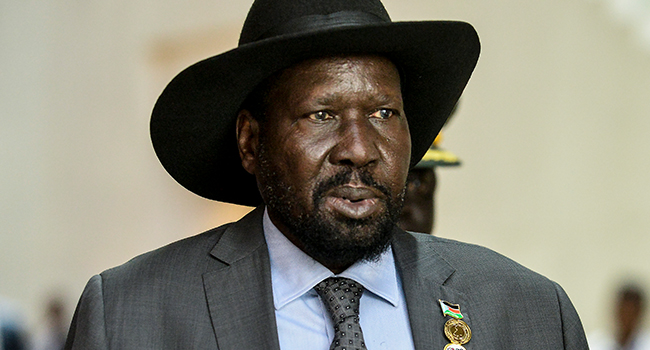South Sudan’s President Salva Kiir has called on Sudanese holdout groups to join the negotiation table to speed up the implementation of the Juba Peace Agreement. President Kiir, who is the guarantor of the Sudan peace agreement, made the remarks after leaders from South Sudan and Sudan witnessed the signing of the third amendment of an implementation matrix of the agreement between Sudan’s government and opposition groups under the Sudan Revolutionary Front (SRF).
The president stressed that lasting peace in Sudan will remain elusive until holdout groups such as the SPLM-North and the Sudan Liberation Movement join the peace process. He said that peace is an important dividend for the two sisterly countries, and their shared historical values and common interests demand that they work for stability to ensure prosperity for their people.
When was the Juba Peace Agreement signed?
The Juba Peace Agreement was signed in Juba under the auspices of President Kiir on October 3, 2020, between the Sudanese government and 14 signatories. The Republic of Chad, United Arab Emirates and Intergovernmental Authority on Development (IGAD) are the guarantors, while Egypt and Qatar are witnesses to the peace deal. During Pope Francis’s visit to South Sudan earlier this month, he encouraged the implementation of a peace accord to end the civil war and bring hope to South Sudan.
The newly signed implementation matrix is not an attempt to renegotiate the 2020 Juba peace agreement but to facilitate dialogue among parties to transition the country towards sustainable peace. The opposition parties that signed the matrix include the Sudan People’s Liberation Movement-North (SPLM-North) faction led by Malik Agar, the Justice and Equality Movement under Gibril Ibrahim, the Democratic Union party led by Eltom Hajou, and the Sudan Liberation Movement under Minni Minnawi.
However, the SPLM-N faction led by Abdel Aziz Al-Hilu and Sudan Liberation Movement under Abdul Wahi Al-Nur did not sign the matrix. Minnawi called on the international community and the region to provide financial and political support for the implementation of the peace deal, which has stalled due to a lack of funding and political uncertainty in Sudan.
Sudan’s head of Sovereign Council, Abdel Fattah al-Burhan, reaffirmed his government’s commitment to work with the signatories to the Juba peace deal to fully implement the matrix for lasting peace in Sudan. Ismail Wais, the special envoy to Sudan and South Sudan of the IGAD, urged the signatories to the Juba Peace Agreement to consistently implement it, noting that the peace guarantors are behind the government of Sudan to ensure that a sustainable peace is reached in the country.
El Sheikh Iben Omar, the special advisor of Chad’s President Mahamat Idriss Deby Itno, commended the government of South Sudan for the support and mediation of the Sudanese peace agreement. The implementation of the Juba peace agreement will help in putting into practice the 2012 cooperation agreement, providing joint border security and the opening of border points for trade and exchange.
Image Credit: MICHAEL TEWELDE / AFP




